Why Perkins?
Imagine a place where you can cultivate your God-given gifts to become the servant leader you've been called to be.
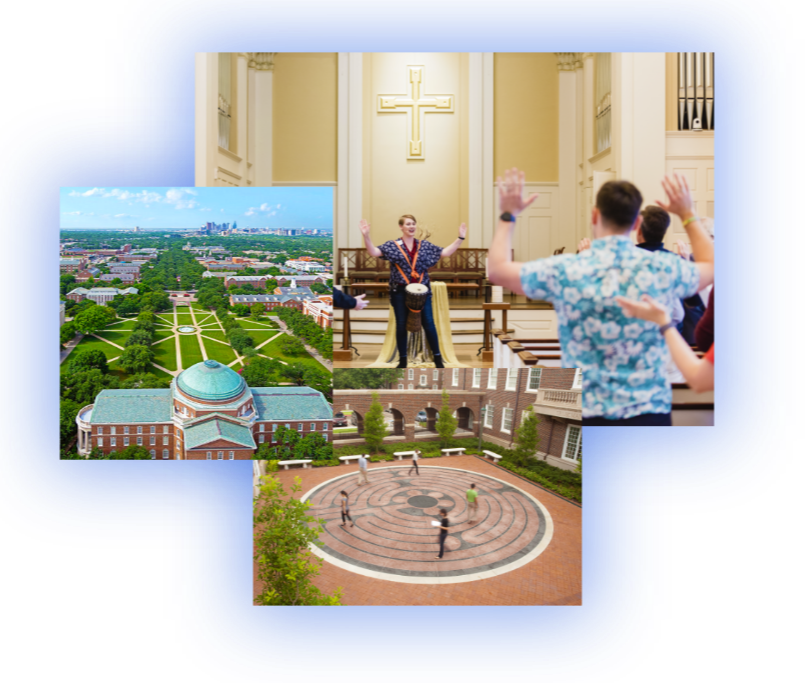
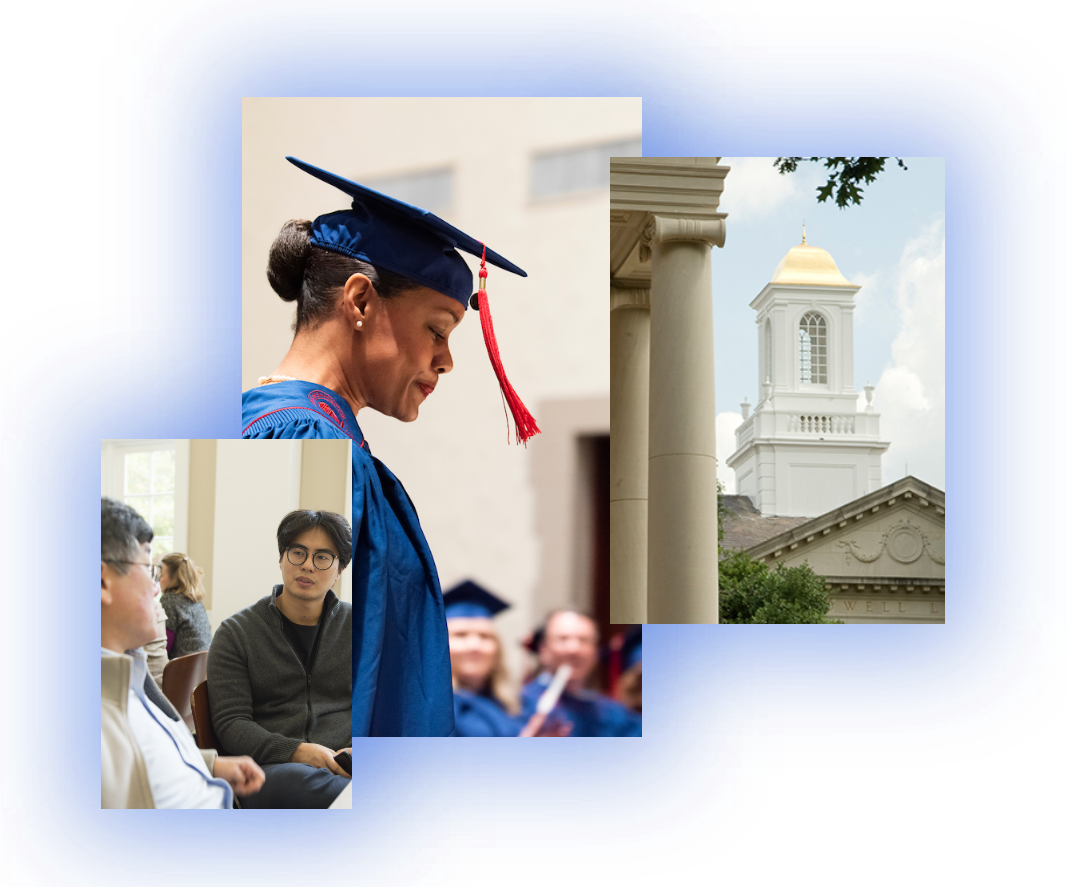
A place where you are welcomed to create meaningful dialogue with others who share similar interests and goals as you.
Imagine a place that guides you to gather the resources needed – spiritual and intellectual – to answer your special calling.
That space exists at Perkins School of Theology, and we welcome you to join us and all of the other servant leaders that have walked our halls, worshiped with us and discerned their call here.
Our mission is to equip persons for faithful leadership and Christian ministry in a changing church and society; to educate those seeking a deeper understanding of the Christian faith; and to strengthen the church, academy and world through service, scholarship and advocacy.
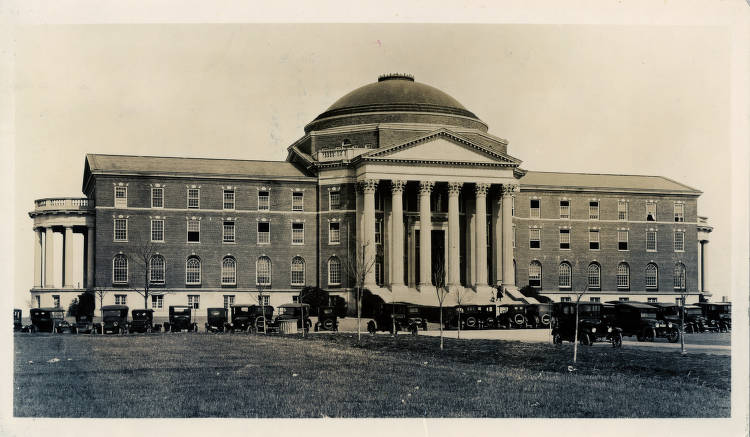
1914
Perkins School of Theology, as it is known today, has been part of SMU since the University's founding by the Methodist Episcopal Church, South. Bishop Edwin Mouzon was appointed the first dean of the Theological Department at SMU in 1914 which opened in the next year.
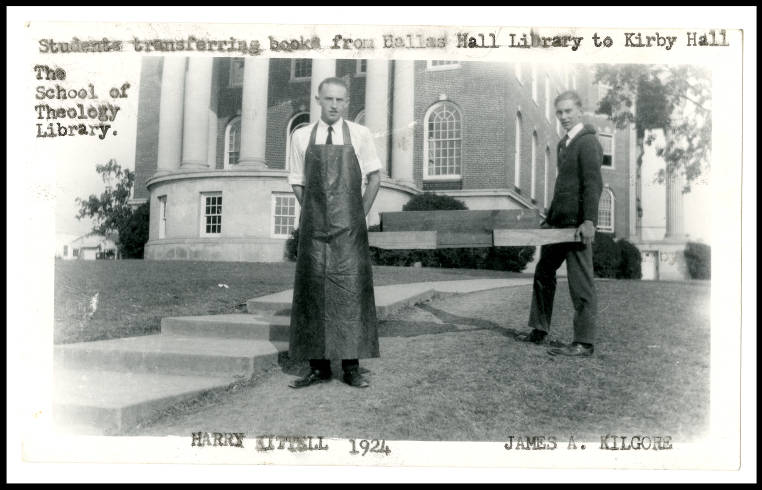
The theological department at SMU developed a reputation for progressive theology, occasionally at odds with the broader university. The university eventually removed Professor John A. Rice, who had been harassed by Fundamentalists for advocating modern historical-critical views of scripture. Despite Rice’s removal, the department of theology maintained its commitments to modern scholarship.
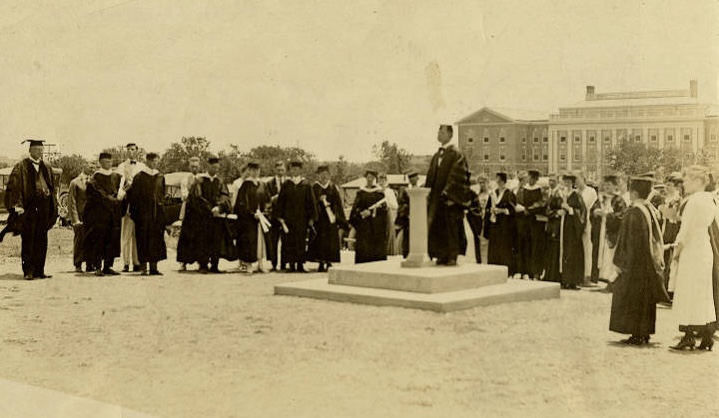
1939
The theological department becomes part of a newly formed denomination known as the Methodist Church. This denomination would later merge in 1968 with the United Evangelical Brethren Church to form the United Methodist Church as it is known today.
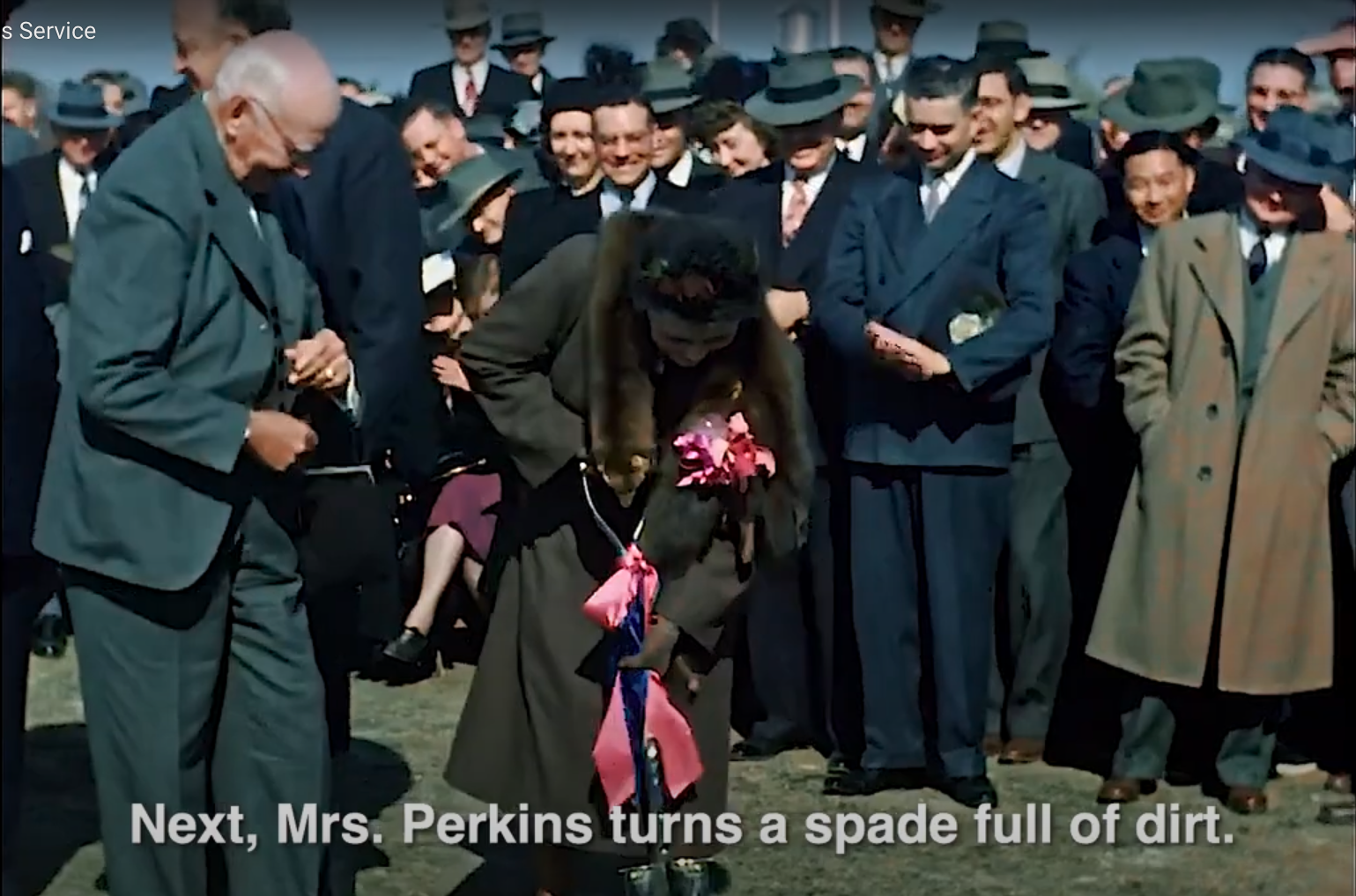
1940s
In the late 1940’s, the theological department began to expand. The GI Bill of Rights, made college education much more widely available and a seminary education became normative for Methodists of the time. As a result, the school of theology moved to a new quadrangle of the university with its own library, chapel, dormitories, classroom buildings, and administrative offices. It was during this move that the department was renamed: Perkins School of Theology.
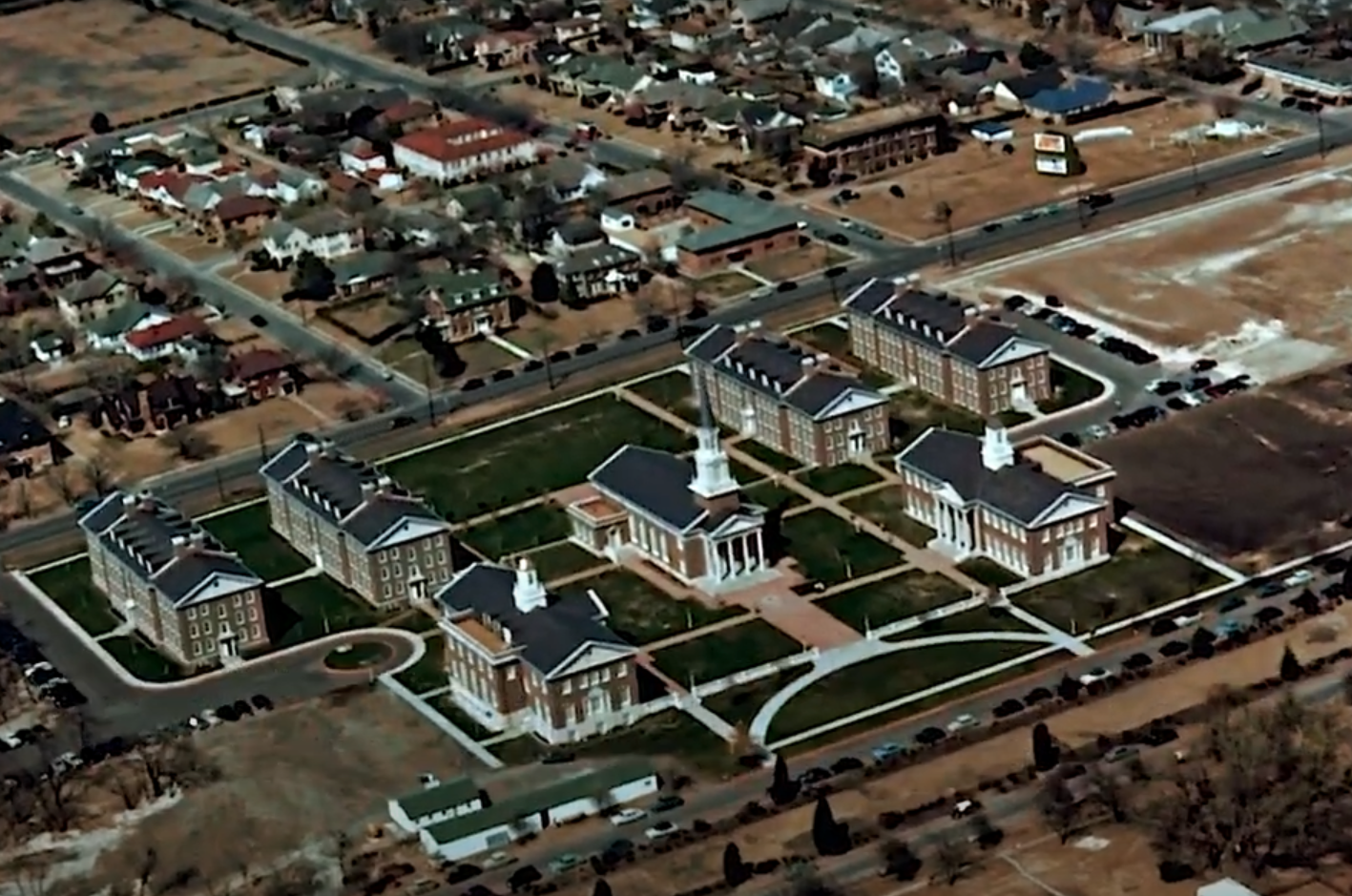
1940's - 50's
In these decades, Perkins School of Theology began to attract faculty members from nationally and internationally recognized research universities. Albert C. Outler, for example, joined the faculty in 1951. In the same period, Bridwell Library began to develop an international reputation as a center for historic and modern theological resources and is now one of the largest theological libraries in the world.
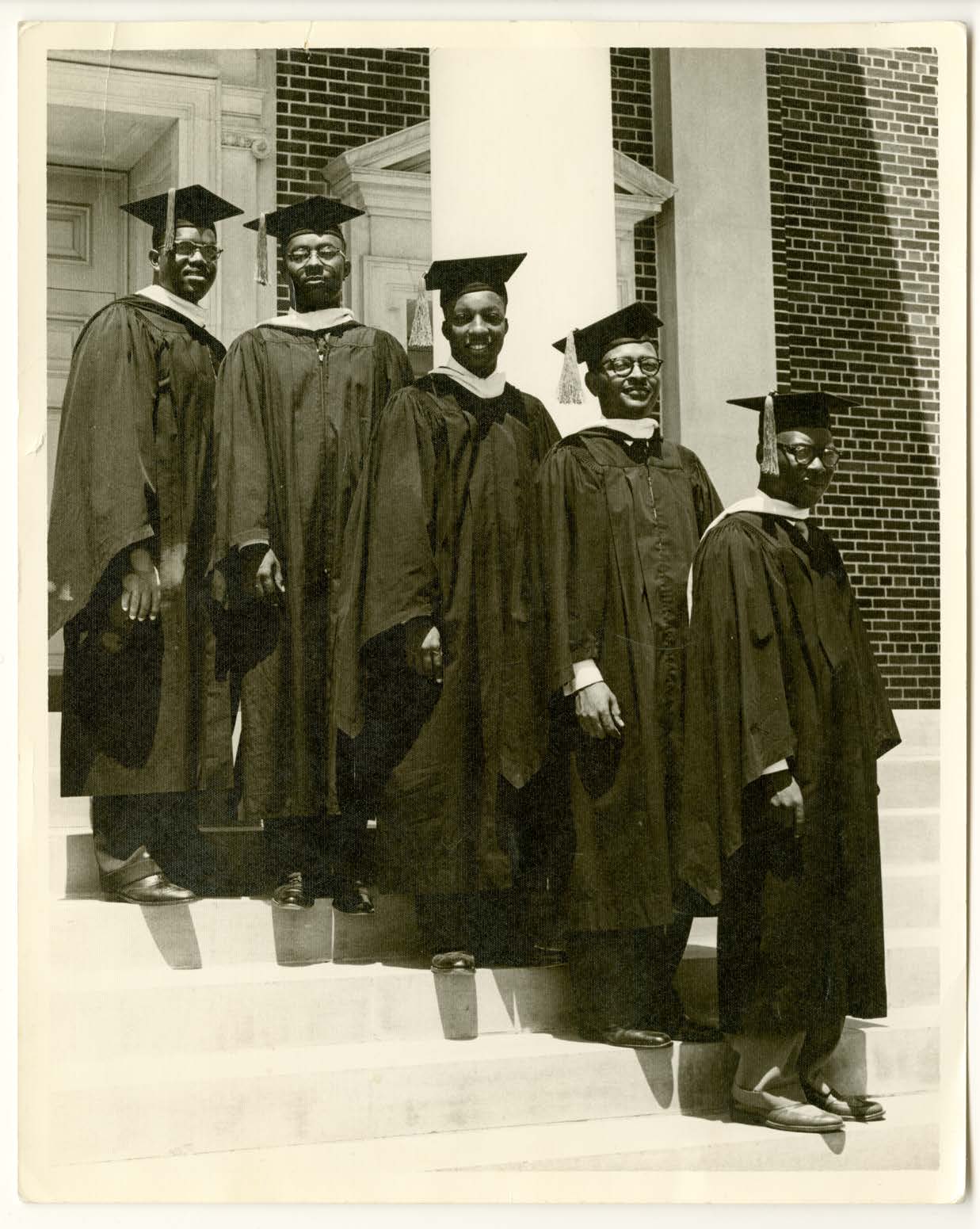
1952
Perkins School of Theology admitted five African American students, the first Black students admitted to any school of Southern Methodist University. The decision to admit Black students occurred several years prior to the Supreme Court's ruling on Brown vs. Board of Education, ruling segregation unconstitutional.
%20Rabbi%20Levi%20Olan%2c%20Sarita%20Olan%2c%20Shirley%20Alweis%2c%20Norman%20Alweis.%20Standing%20behind%20the%20Czech%20Torah%20Scroll%20(BRMS60)%20at%20a%20Bridwell%20Library%20High%20Tea.%20Sunday%2c%20January%2016%2c%201977..jpeg)
1960's
The faculty of Perkins School of Theology became much more diverse, including courses taught by professors like Rabbi Levi Olan. In this decade, the Perkins faculty adopted a statement now included in all syllabi that insists upon racial and gender inclusion in all courses.
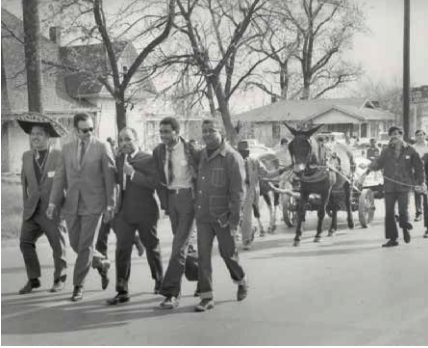
1970's
In this decade, Perkins faculty and students were engaged in the Civil Rights movement, including traveling to march with Rev. Dr. Martin Luther King in Selma. Rev. Dr. King was later invited to speak at SMU in 1966. Students and faculty were also engaged in other social issues of the time, such as the women’s rights movement, the Vietnam War and marches against the creation and use of ballistic missiles.
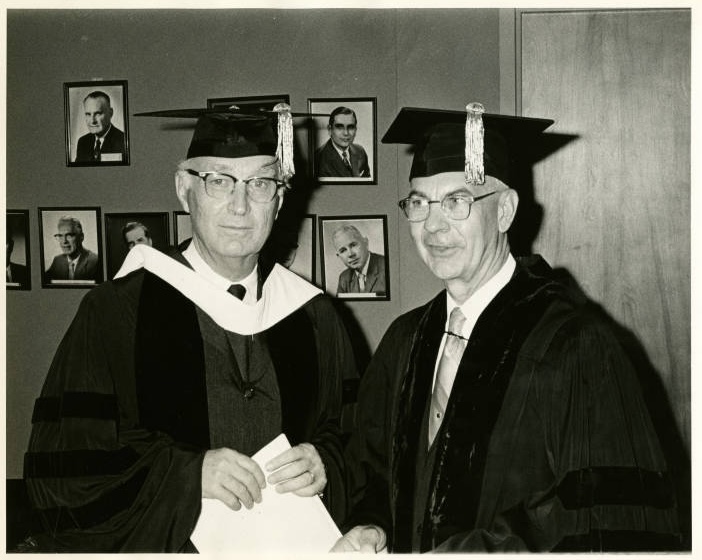
1970's - 80's
By this time, the teaching of systematic theology at Perkins had come to focus on a “Credo” course, team-taught by two theology professors with radically different points of view. This course came to symbolize the kind of ideological diversity Perkins is now known for, accepting many perspectives, challenging students to collaborate across their differences.
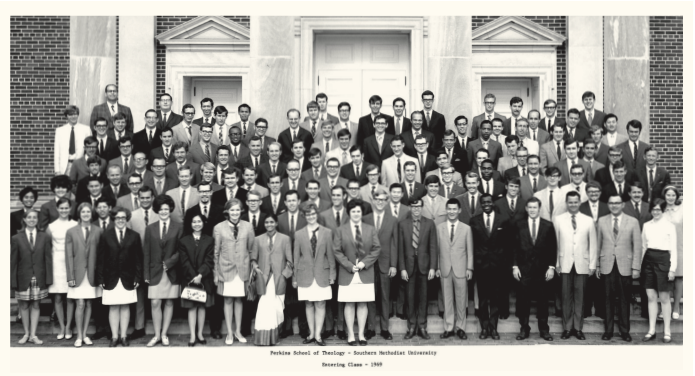
1980’s - 90’s
While Perkins is widely recognized for its academic rigor, the 80’s accentuated a culture of comedic critique from students, annually ‘spoofing’ faculty members in the “Perkins Panorama,” and in unauthorized underground publications such as the “Babylonian Schismatic.” Such demonstrations from students indicate the type of critical thinking and power subversion encouraged through a Perkins education.
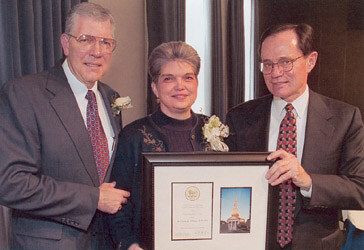
1995
What is today known as the Houston Extension Site originated as the Houston Program in 1995. Over the years, the Perkins School of Theology has impacted the Houston-Galveston area, producing such ministers and leaders such as Bishop Cynthia Fierro Harvey. Houston allowed Perkins to flourish in a time that was becoming difficult for theological education.
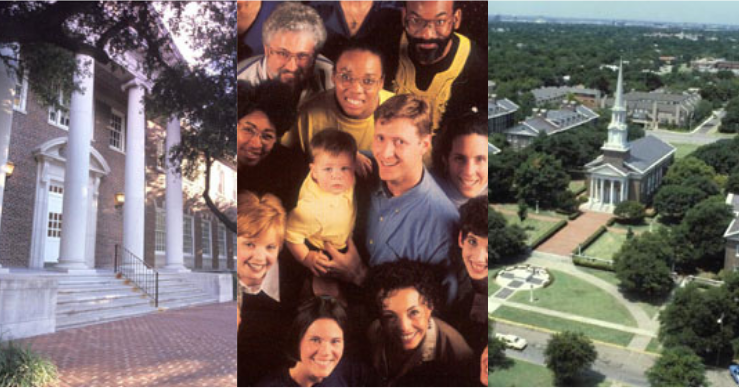
2000’s
By the early 2000’s, questions of gender and identity had become commonplace in the theological conversation and at Perkins School of Theology. Throughout the years, Perkins School of Theology remained dedicated to its commitments of diversity and inclusion, creating space for anyone seeking an education. Student Life on campus supported students by assisting with the formation of several student organizations.
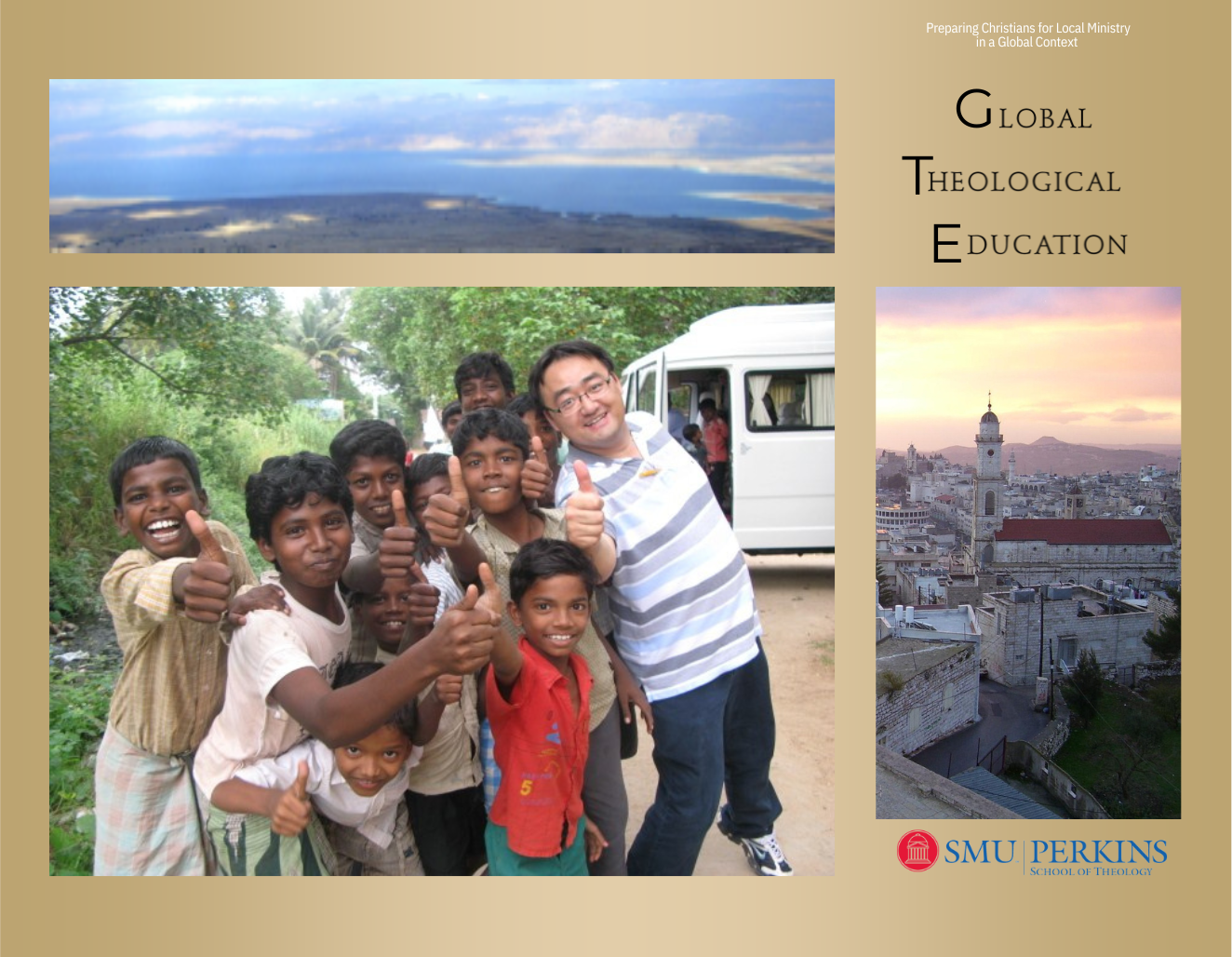
2004
The Global Theological Education Program at Perkins School of Theology was officially inaugurated in 2004 with the appointment of Dr. Robert Hunt as Director of the Program. Its purpose was to give every student at Perkins the opportunity to be immersed in a Christian culture other than their own, visiting distinct international and national contexts. With most of the travel costs paid through travel stipends, Perkins students have been immersed in the borderlands of Texas, Cuba, Palestine/Israel, Africa, India, and China.
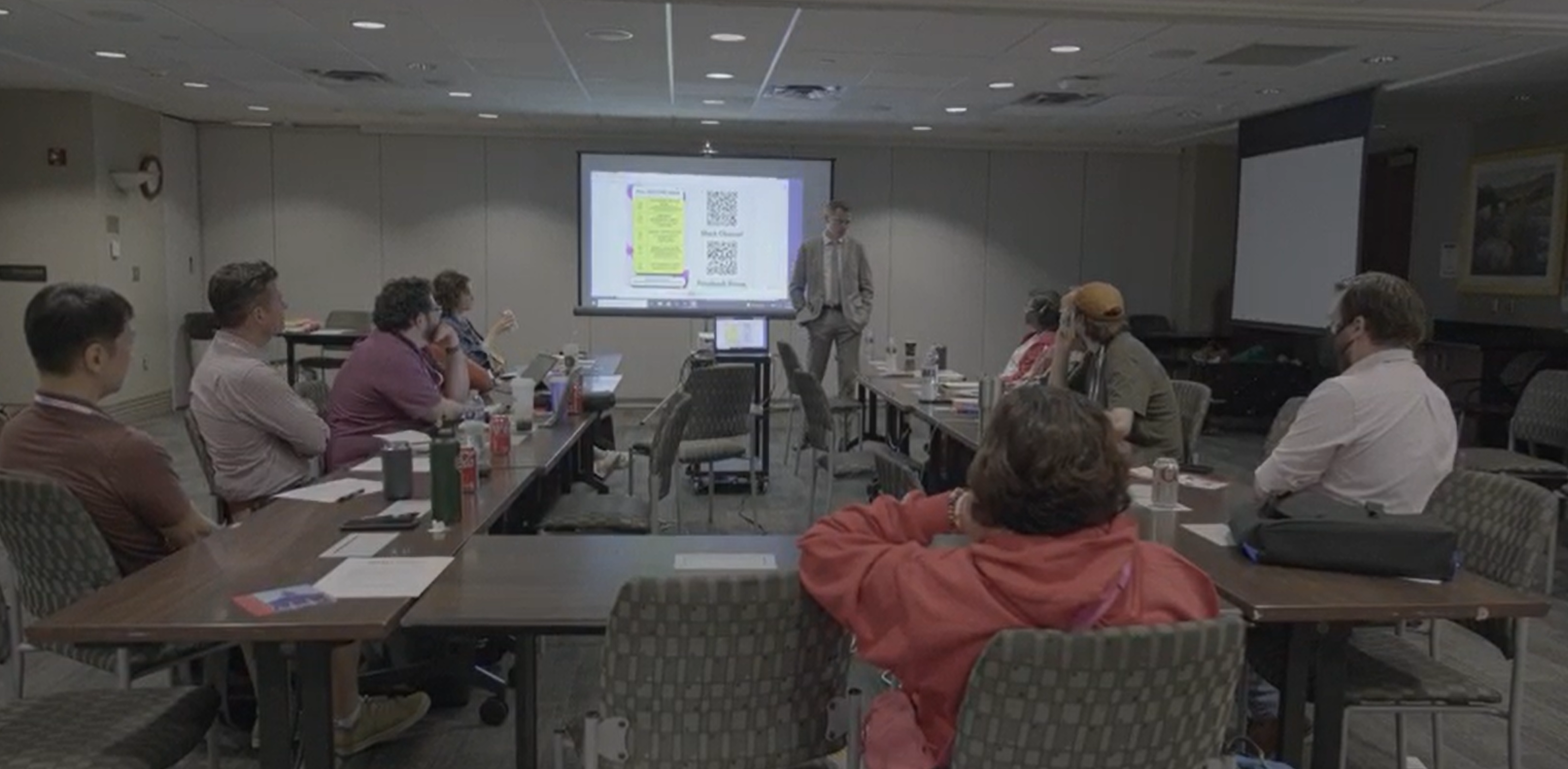
2015
From the growing demand, Perkins School of Theology began exploring course offerings in new modalities, such as hybrid. In 2017, Perkins offered the first hybrid program in Houston, setting the stage for the Houston-Galveston Hybrid Program to begin. Hybrid allowed the Perkins education to reach more students than ever before.
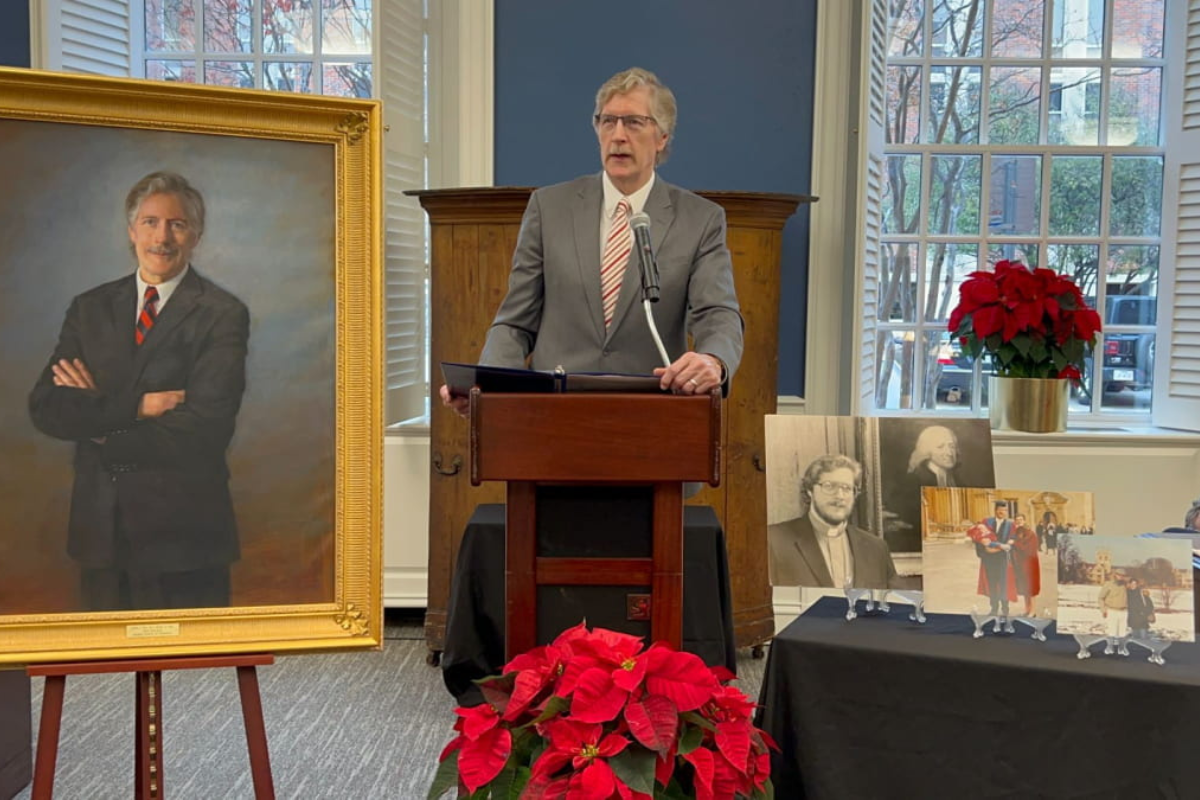
2019
Under the leadership of Dean Craig C. Hill, Perkins School of Theology began implementing further programming, expanding the reach of theological education. Programs include: The Baptist House of Studies, Black-Africanca Church Studies, Centro de Acompañamiento, Solidaridad y Adiestramiento, and the MAST+ Practicum.
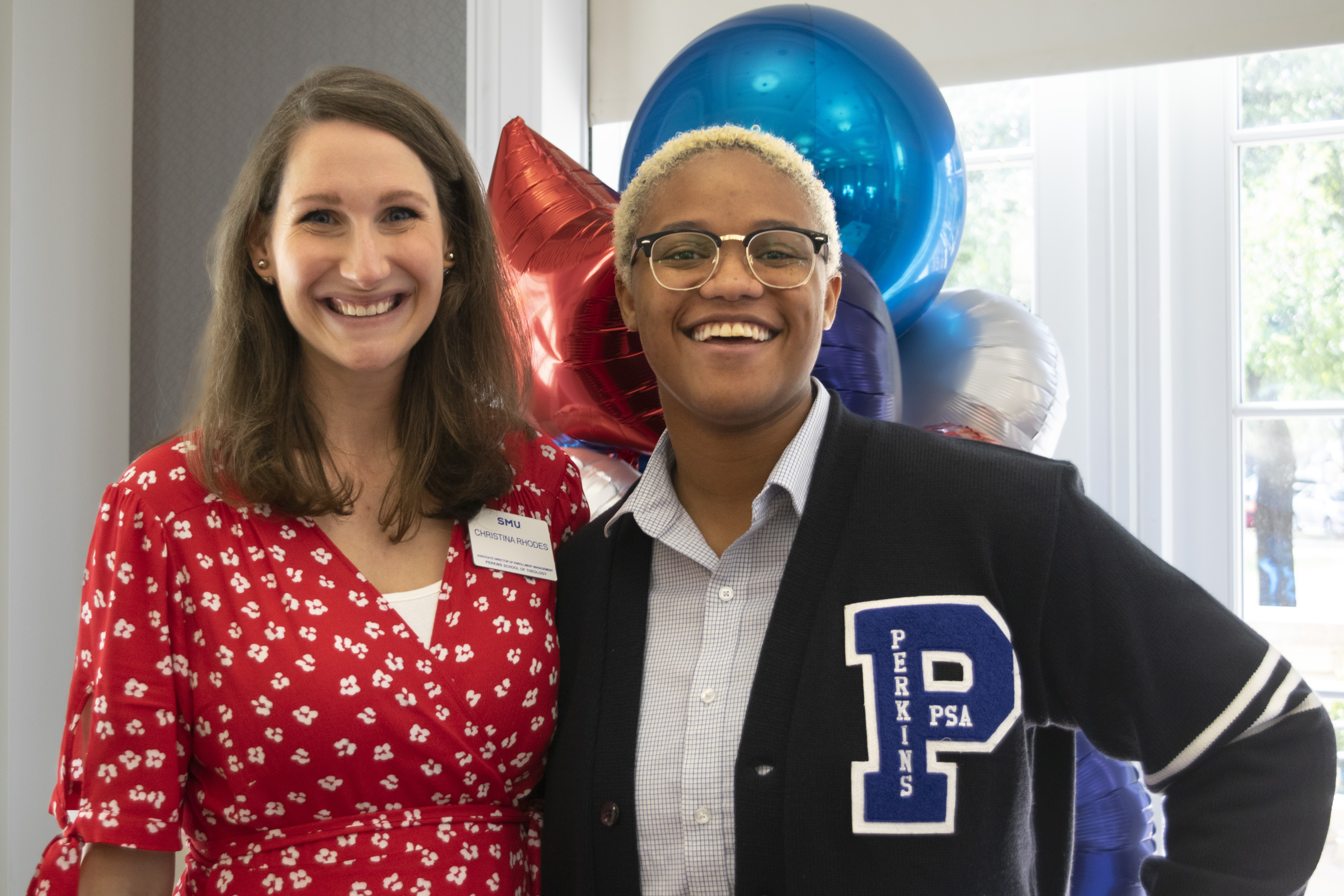
2024
With the growing demand for a more contextual and student-centered education, the board of trustees voted to expand the online learning already being done into one hybrid modality. The most flexible format yet, the program highlights 70% online instruction and 30% in-person classes completed through immersions.
Perkins by the Numbers

54% of students are United Methodist, with the rest representing more than 20 different Christian denominations

Student body of more than 250 students

Faculty of 30 with 40% being female and more than 30% representing minority groups

45% of students represent minority groups

Our alumni network reaches across the globe, from Australia to Zimbabwe
What Makes Perkins Different From Other Seminaries and Theology Schools?
At Perkins School of Theology, you’ll experience a loving and welcoming community, with a cadre of kindred spirits who support and care for one another. Here, you’ll foster deep and professional relationships that extend beyond campus and will last a lifetime.
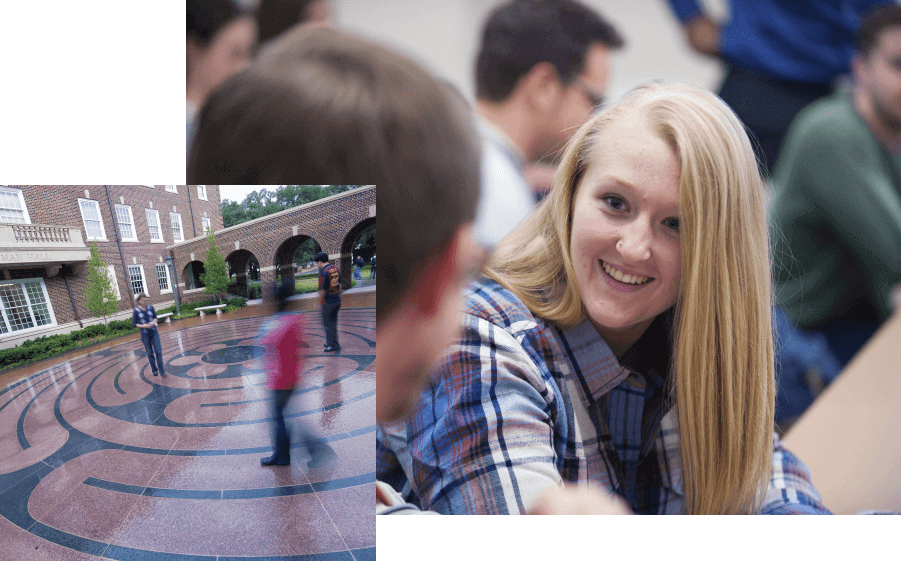
"I have been and will be continuously blessed by relationships cultivated through Perkins. Classmates, professors and administrators whose mere presence encourage me to be a better man and minister, to keep loving, learning and fighting for justice, and to stay grounded in prayer.”
-Christian Watkins (M. Div 2019)
The Perkins experience is unlike any other, and enables students from varieties of backgrounds, denominations, theological perspectives, life experiences, socioeconomic roots and geographic origins to learn from one another; to disagree with one another sometimes, but to experience each other as beloved children of God. Perkins’ modeling is crucial for the reality of ministry in our modern world as a servant leader – regarding all with whom you come into contact with, and learning to navigate dissension and disagreement in many different settings while still honoring the persons themselves.
At Perkins, we don’t teach students what to think; we teach students how to think.
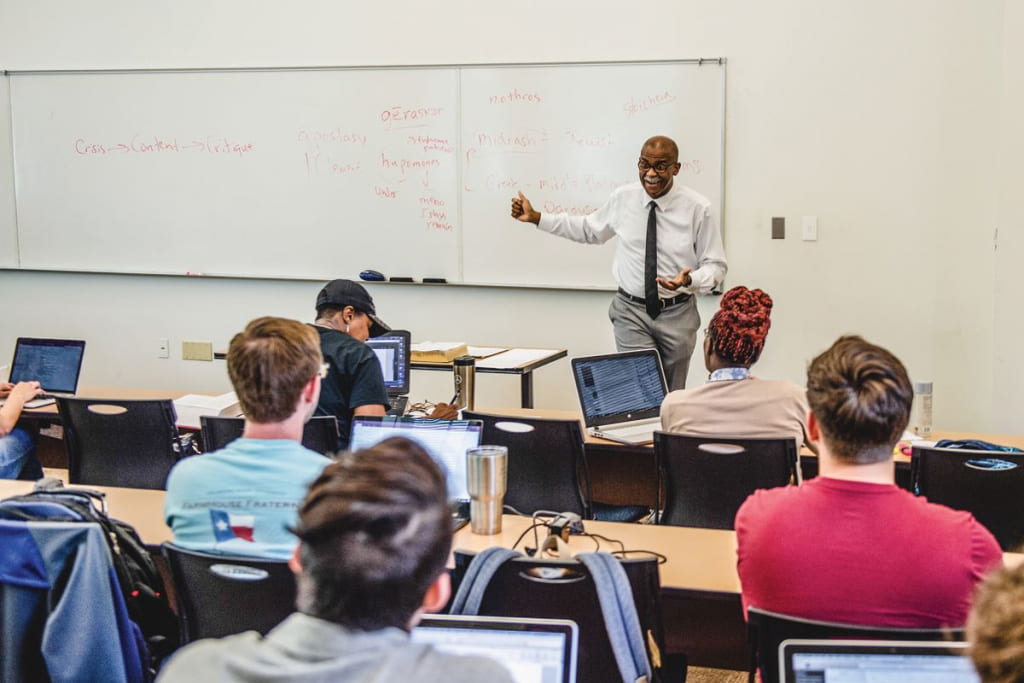
Perkins has one of the nation’s top faculties, covering the range of theological, biblical and pastoral scholarship and preparation.
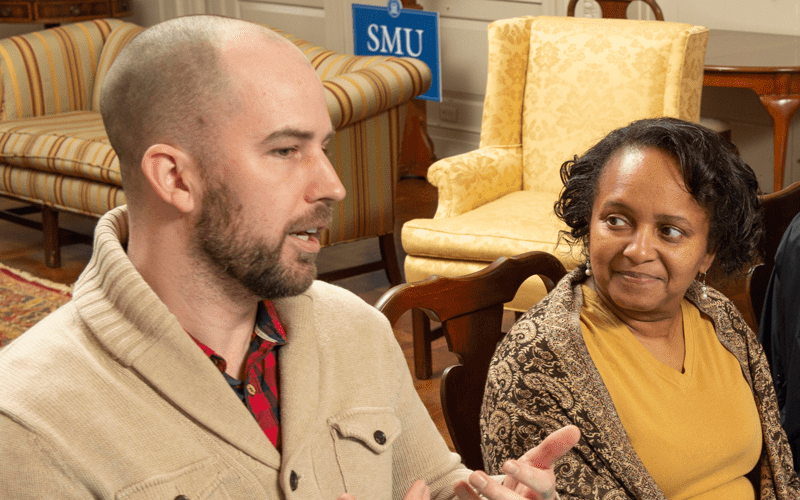
The Perkins Intern Program is widely recognized as an exemplary program in preparing women and men for faithful leadership in Christian ministry. During the Perkins internship, students integrate the knowledge and theological reflection disciplines learned in the classroom with the practical demands of providing faithful leadership within a real-life congregation or agency.
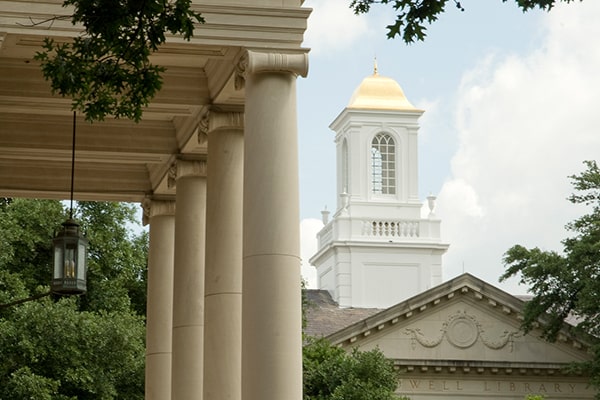
The Bridwell Library at Perkins School of Theology includes a full range of theological, biblical and historical materials relating to the development of Christianity. Our library is among the best theological libraries in the nation and is one of the many academic resources available at Perkins. Bridwell, along with our renowned faculty, is at the core of Perkins’ reputation of academic excellence as a leader in theological education.
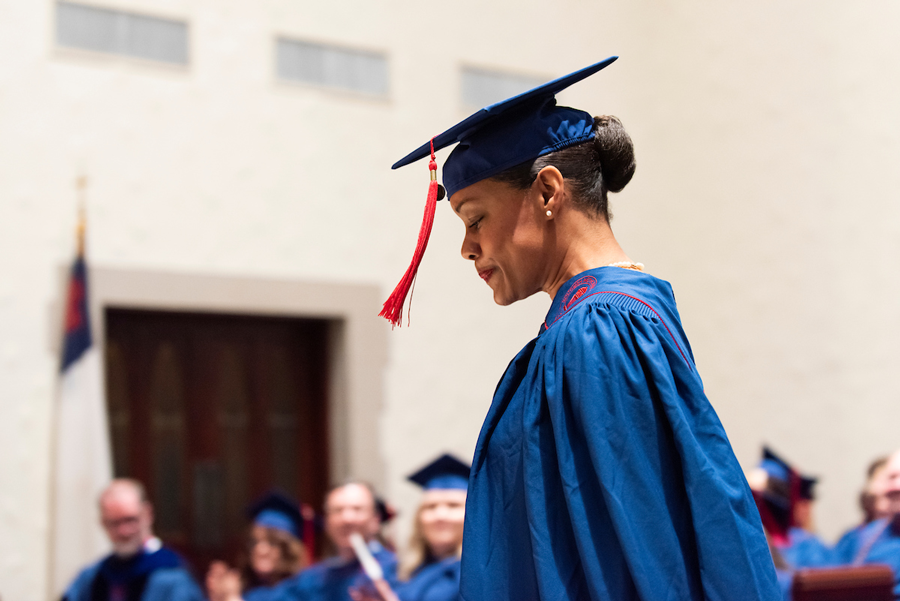
Perkins offers unique degree concentrations and partnerships with other SMU schools, such as an MBA/M.Div. or M.A.M. (at Perkins tuition rates) with SMU's Cox School of Business; a minor in Christian Theology with Dedman College’s Department of Religious Studies; a concentration in Social Innovation and Nonprofit Engagement with Meadows School of the Arts; and a concentration in Church/Nonprofit Management with Cox School of Business.
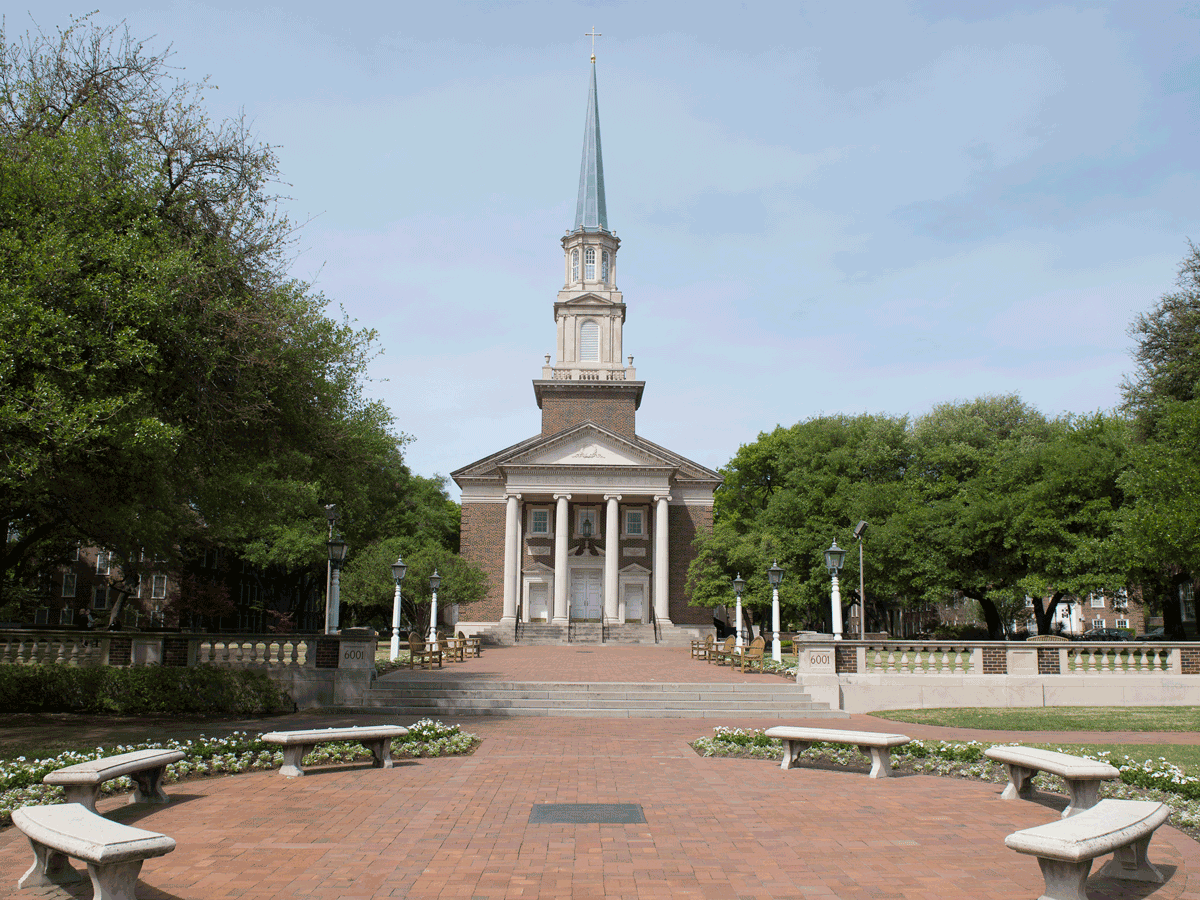
Students at Perkins will enroll in the Spiritual Formation Program, where they’ll share in a formative experience designed to provide them with the framework of a common experience, emphasizing in prayer and devotion, exposure to a variety of spiritual disciplines, explore the central genius of spiritual traditions and have the opportunity to explore the deeper connection between spiritual formation and vital ministry.
![[EBOOK] Flexible Hybrid Program | Chapter 2 Image 2 (Student Perspectives)](https://perkins.smu.edu/hubfs/%5BEBOOK%5D%20Flexible%20Hybrid%20Program%20%7C%20Chapter%202%20Image%202%20(Student%20Perspectives).jpeg)
In keeping with its mission to prepare and empower women and men as faithful leaders in Christian ministry, Perkins now offers a hybrid program. If you’ve felt torn between your service in a local ministry and your desire to pursue a ministry degree, our hybrid program is designed for you. The program is accessible and flexible, allowing for over 70 percent of your degree to be completed online and provides immersion courses that are tentatively scheduled in rotating cities to build connections and community with fellow cohorts.
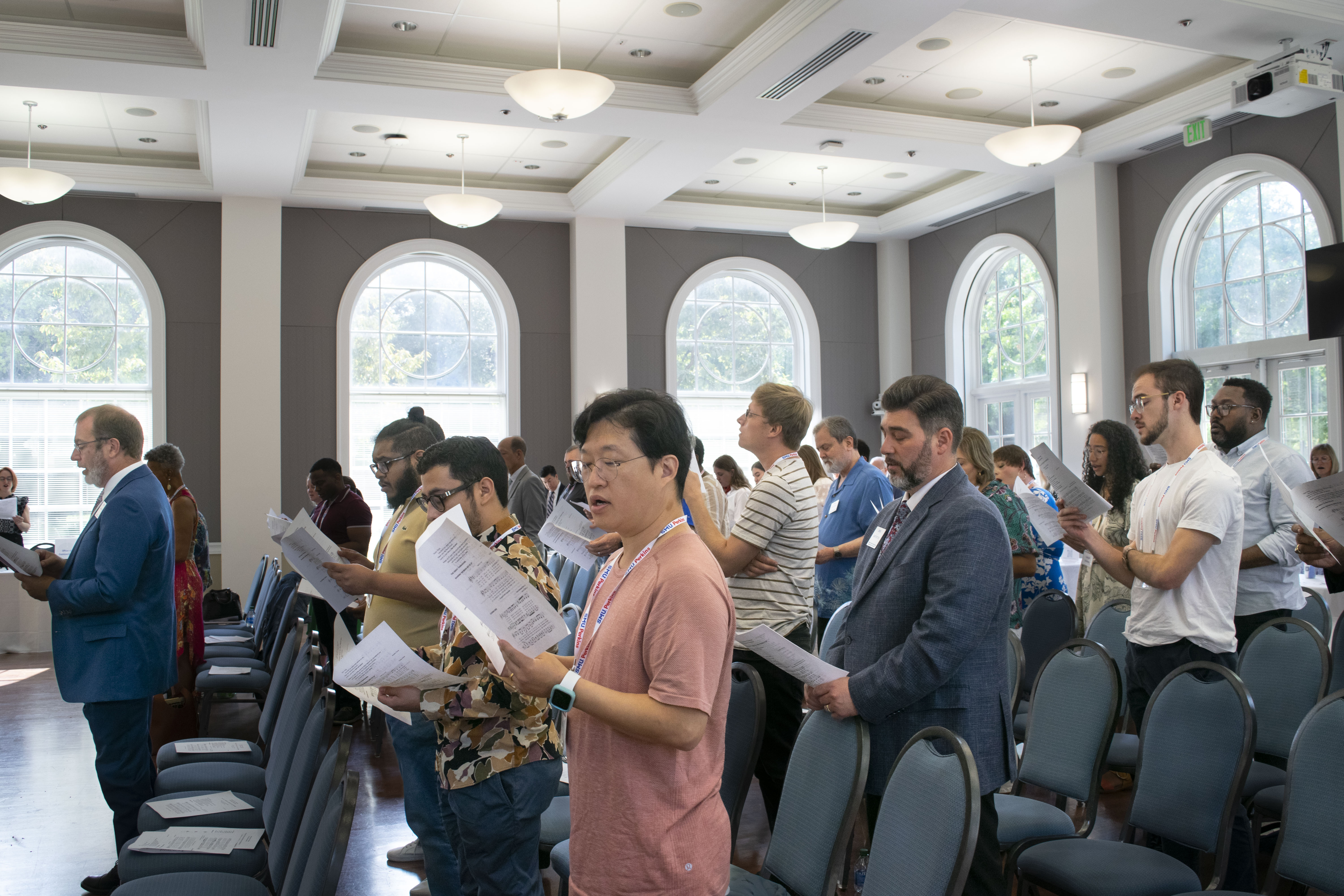
Being part of Southern Methodist University, Perkins is able to provide a full range of opportunities not possible at a stand-alone theology school. The opportunities for learning, especially from entrepreneurial and cutting-edge ministries, are exponential in the Dallas area.
In an increasingly polarized world, Perkins is a unique place where servant leaders gather together as a hospitable community in Christ and learn from each other across differences and boundaries.

What Our Students Have to Say About Perkins and Their Theological Studies
At Perkins, we have had the opportunity to welcome many unique students to our campus, all of which come with different viewpoints, life experiences, beliefs and backgrounds. But, our students all share one thing in common; their faith, and their love for Perkins.
At Perkins, we bridge the academy to the church and the church to the academy and honor one's call from God. Perkins recognizes that this is your time and that there is no one like you.
Perkins is truly a family environment, they will hold you accountable, love on you and set you up to succeed. I am not only enjoying how personable the faculty members are but the administration and staff as well. The Perkins community has truly been a blessing to me."
- David Hughes, Current Student
“I chose Perkins over others, especially because of the faculty. The faculty and staff [at Perkins] were interested in my story, and they showed that they wanted me here more than the others.”
-Fernando Berwig-Silva, Current M.S.M Student
“For the student body, it is very diverse and it’s definitely a place where you will be challenged. You will meet a lot of people who come from different backgrounds and traditions, and in that way it can be really fruitful. It’s an opportunity to learn about Christianity and how to exist in the world as it is.”
- Phylicia McFaddin, Current Student
“Perkins is a real community and that’s very rare. It’s big enough where you don’t feel like you’re in the spotlight but small enough where everybody knows your name.”
- Madelyn Watkins, Current Student
We also offer unique opportunities to help create diverse, understanding leaders.
The Baptist House of Studies
Perkins offers The Baptist House of Studies (BHS), which fosters community for ministerial students, faculty and staff who identify with the Baptist and Free Church traditions. The BHS is a spiritual, rather than a physical house, that supports and encourages students as they pursue their academic and ecclesial training in an ecumenical and university-based seminary.
Black/African Church Studies
Perkins offers the Black/Africana Church Studies Program which critically explores Black theology, Black Biblical studies and interpretation, history, pastoral theology, preaching, worship, religious education, ethics and other practices. Students of Black and/or African descent will benefit from critical emphases on multiple fields of Black/Africana Church Studies.
MAST+ Program
Perkins offers the Ministers // Artists // Scholars // Teachers // + (MAST +) Program. The MAST + framework responds to the experiences, needs, and realities of a fast-paced new world in which we are now living. MAST+ adapts to students' needs and interests by expanding the notions of discernment and process in an intentional community of creative learners.
At Perkins, you will develop character by creating integrity, challenging yourself, exploring new ways of thinking and stretching your own personal beliefs all while growing in your faith with others who share the same passion for servant leadership and vocation.
Education at Perkins is about discerning who you are, who you want to become and who God is calling you to become. We offer many different graduate degree programs and concentrations. We invite you to discover them and learn which best fits your future goals and calling.
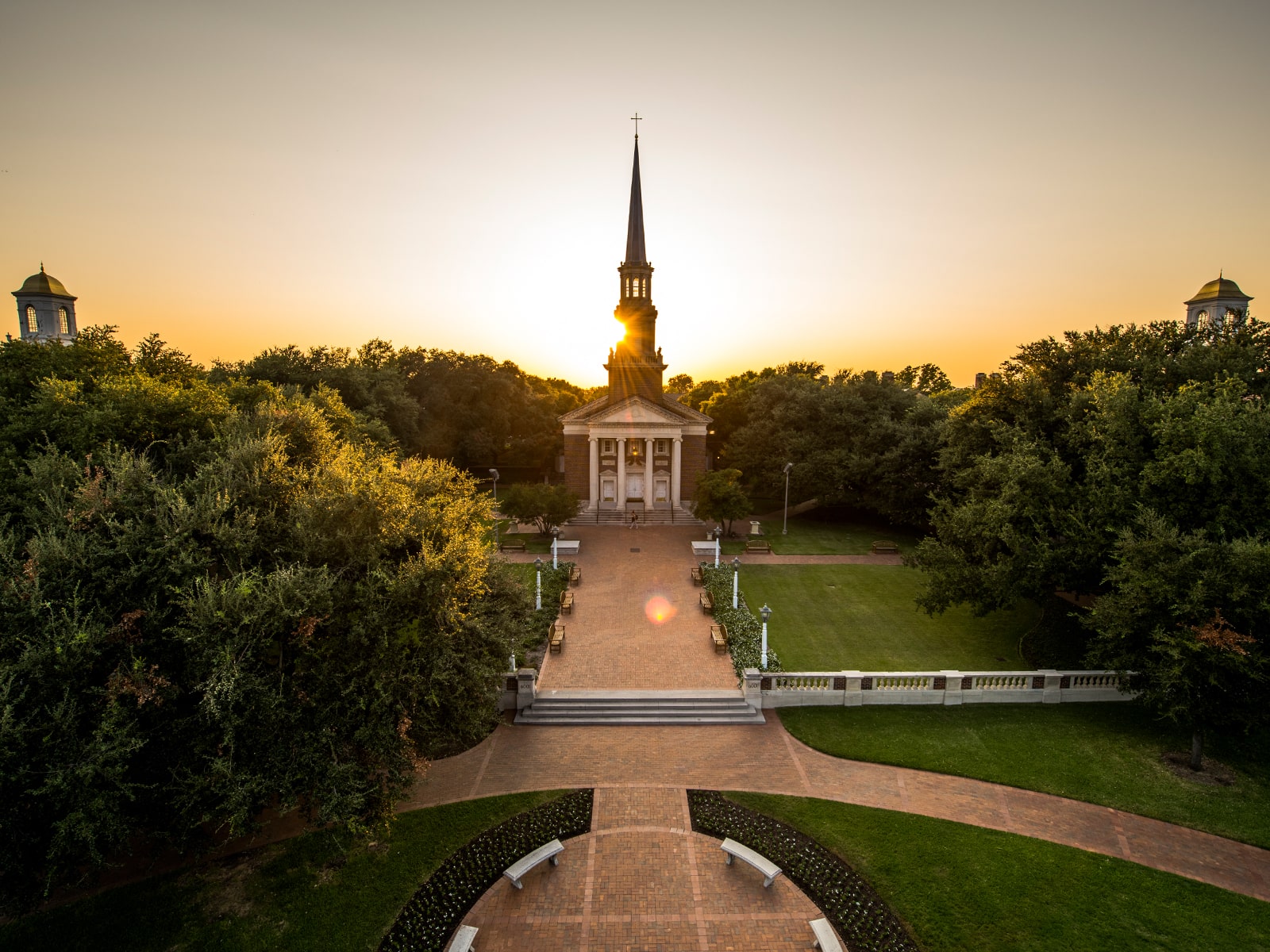
God’s call to ministry can be full of surprises and will likely take you in many directions. The objective is to be prepared. Those who believe they have been called by God to become a preacher or a leader in a mainline denomination are perfect candidates for an M.Div degree.
If you are longing to become an elder or an ordained minister in The United Methodist Church or a church of a different Christian denomination, and want to lead, teach, serve in Word and sacrament, preach and administer communion and guide your congregation, the M.Div. at Perkins is the pathway for you.
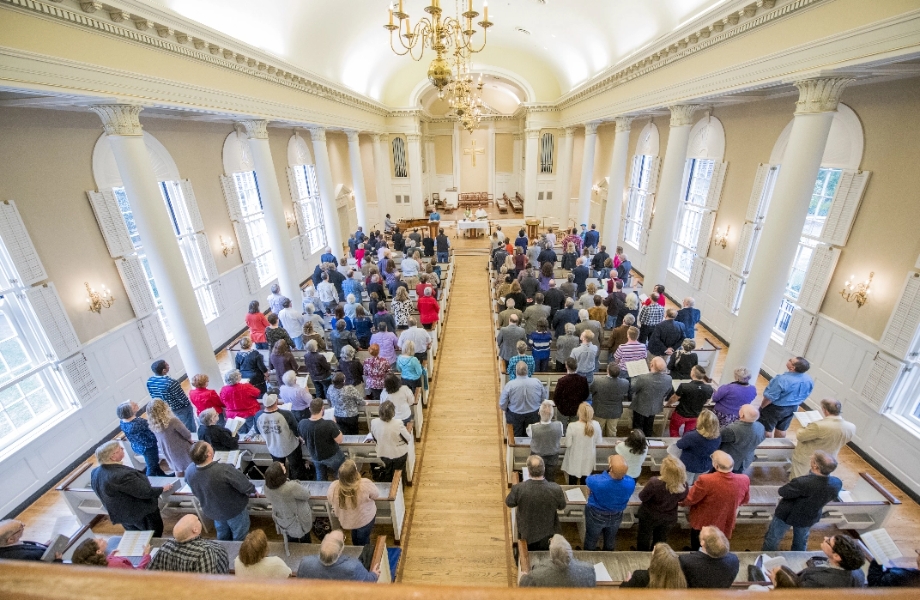
Master of Arts in Ministry
M.A.M. Degree
Similar to the M.Div., the Master of Arts in Ministry degree is an ideal pathway for those who want to become an ordained Deacon in The United Methodist Church or another Christian denomination, but do not want to be the lead minister of their church (although it may be acceptable for lead pastor in some denominations).
An M.A.M. degree will equip you as an ordained Deacon in The United Methodist Church or your denomination if credentials are accepted. Some denominations accept the M.A.M. for the senior pastor role. Check with your ordaining body. An M.A.M. can also lead to vocations and positions in faith-based communities and organizations.
-min.jpg)
Master of Theological Studies
M.T.S. Degree
If you aren’t necessarily being called to vocational ministry, (although some denominations will accept this degree for ordination), and desire to strengthen your theological education for personal enrichment, leadership in the church as a lay minister, or to lay the groundwork for an academic doctorate in religious studies, the M.T.S. degree may be a great option for you.
While offering a solid foundation of theological disciplines, this unique program enables you to plan your studies so that they serve both your personal theological interests and professional goals.
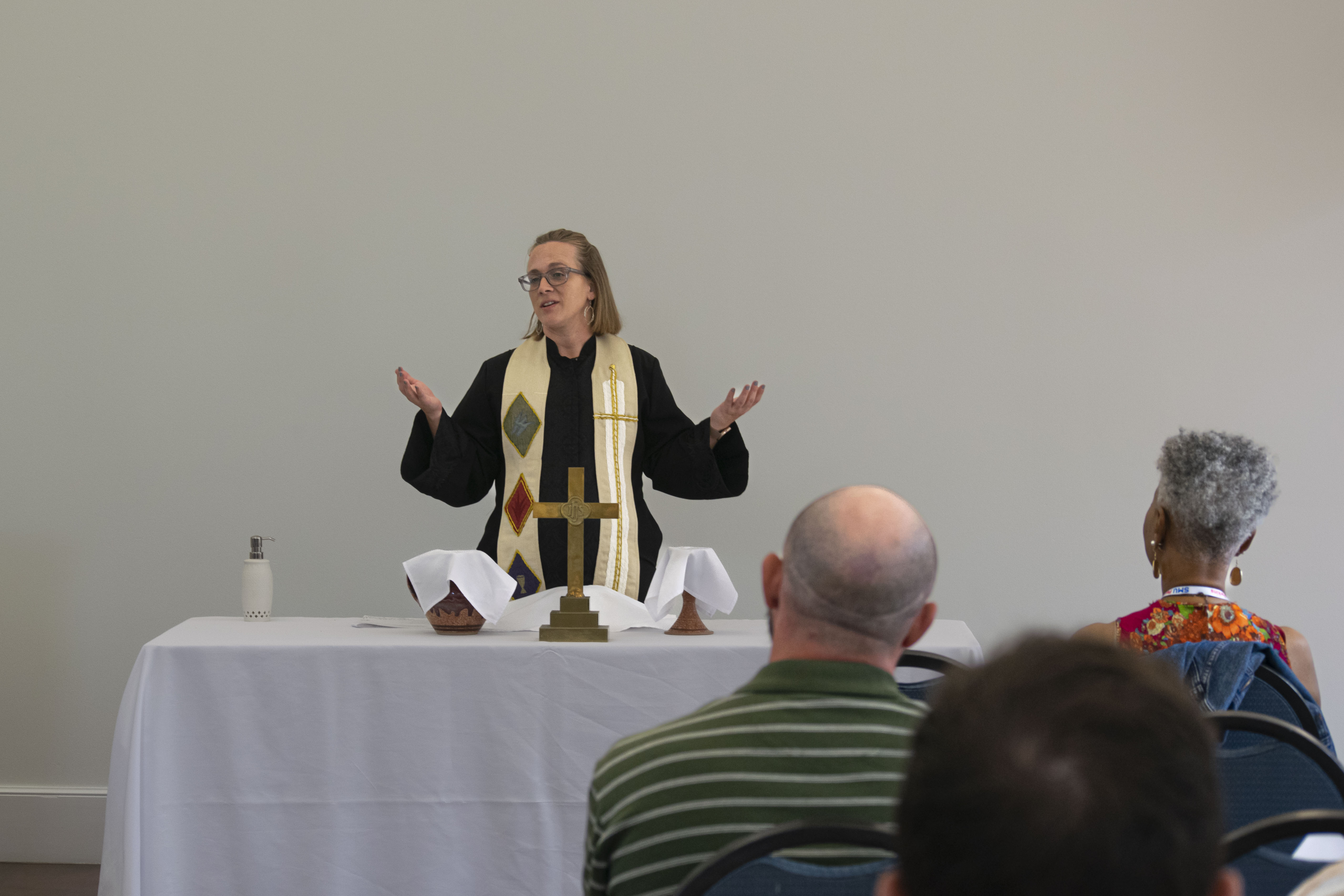
Master of Theology
Th.M. Degree
You may already have a graduate degree in theology and want to go further! The Master of Theology degree program is uniquely created for those who want to enhance the practice of ministry through advanced study of a particular theological or pastoral discipline. In addition, Th.M. students examine specific aspects of Christian traditions and prepare for more advanced study at the doctoral level.
The Th.M. degree is also a great opportunity for pastors who are looking for sabbatical and taking a year to revisit or re-study religious teachings. The Th.M. degree can also equip you for a doctorate in religious studies.
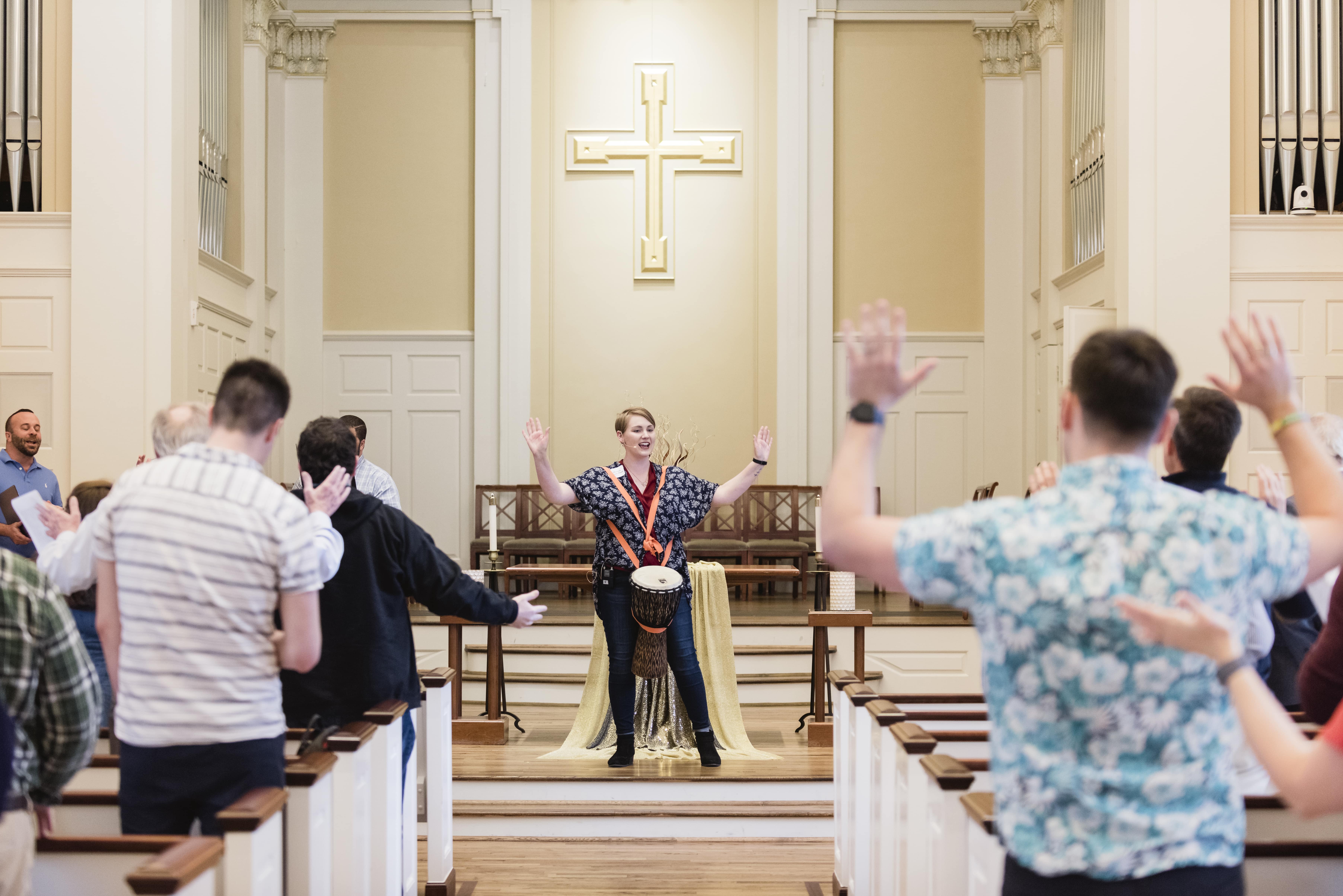
Master of Sacred Music
M.S.M. Degree
The M.S.M. program will prepare you for professional music leadership in the church and academic work in church music. Music and theology courses, professional practicum and leadership development and other opportunities will prepare you to engage with a wide range of literature, performance practices and skills, and to apply this learning in both academic and church settings.
With a Master of Sacred Music degree, you can go on to be ordained as a Deacon in The United Methodist Church, as well as pursue a vocation in music ministry in any setting, whether it be a choral and organ program or a contemporary one. The academic tracks of the M.S.M. degree also prepare students interested in pursuing doctoral studies.
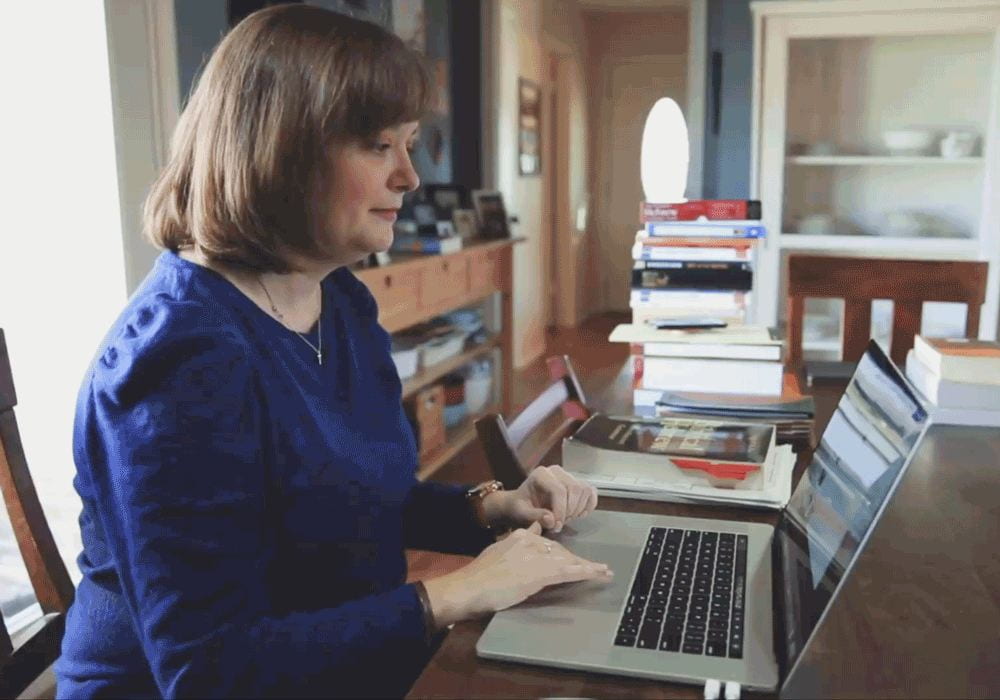
Doctor of Ministry
D. Min. Degree
Sometimes answering your call can be interrupted by the everyday challenges of serving a church. The Doctor of Ministry degree can help you to seek vocational depth and direction; gain theological knowledge and understanding of vocational and leadership identity in tandem with developing skills for relevant practices of ministry that build communities in context; and acquire knowledge, critical insights and skills to exercise leadership grounded in Christian vocation in contexts of transition and change within the Church and the community.

Doctor of Pastoral Music
D.P.M. Degree
Church musicians serve congregations faithfully throughout the United States and beyond. The D.P.M. program is a great fit for you if you are a church musician that wants to re-tune your vocation in the context of the changing demands of the music ministry.
The Doctor of Pastoral Music program at Perkins offers courses to deepen your vocational understanding, broaden your musical skillset and strengthen your understanding of the role of music and arts in the leadership of corporate worship and missional ministry in the community.
Admission Requirements
Just as with any graduate ministry school, Perkins has requirements for admission.
- Bachelor’s degree or equivalent degree (or a master’s, depending on the degree program) from a college or university accredited by a regional accrediting body.
- Three letters of recommendation
- Resume
- Essay
A Perkins education is a valuable investment in developing your call to serve. The Office of Enrollment Management team is ready to work with you to make your seminary experience affordable with scholarships, need-based grants and loans. If you are ready to apply, we are here to help.
100%
of master’s degree-seeking students with a demonstrated need for financial aid receive it
$12,200
is the average annual award granted full-time students
2 weeks
is the time it takes to receive notification of your financial aid package once your application is submitted
When you apply for admission, you are automatically considered for financial aid. You will receive information about your financial aid package soon after notification of your acceptance to Perkins.
At Perkins School of Theology, you will play an increasingly meaningful role in a community of lively dialogue that encourages deep thought and honest reflection. It is our expectation that you will graduate not only with a clearer understanding of yourself, but also with a broader and more sympathetic understanding of the beliefs of others.
Changing your pathway might not always be the easiest choice, but following your call will lead you to a life filled with servant leadership and fulfillment. At Perkins, we welcome you with open arms to learn, test, challenge, discern and utilize your calling. We will be with you every step of the way.
Called to Serve. Empowered to Lead. This is Perkins: the best fit theology school for you.



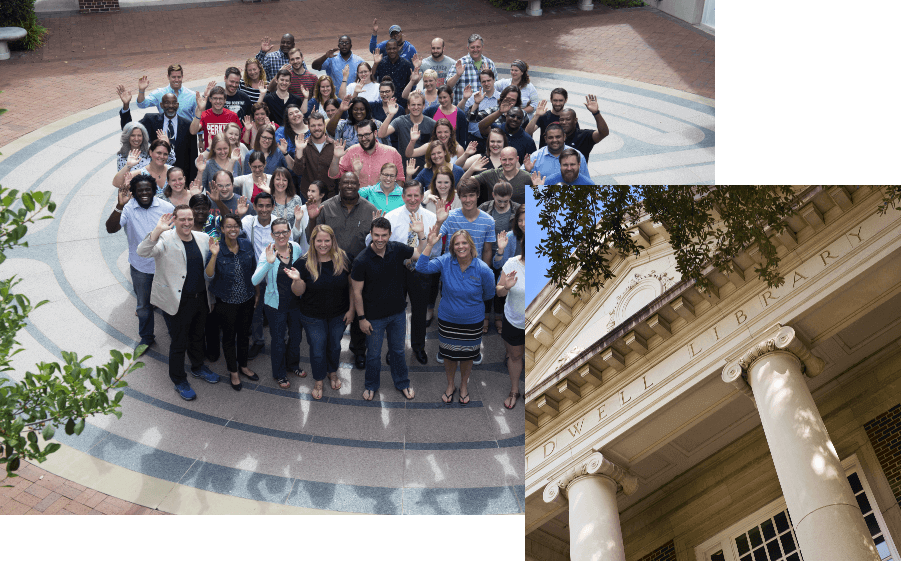
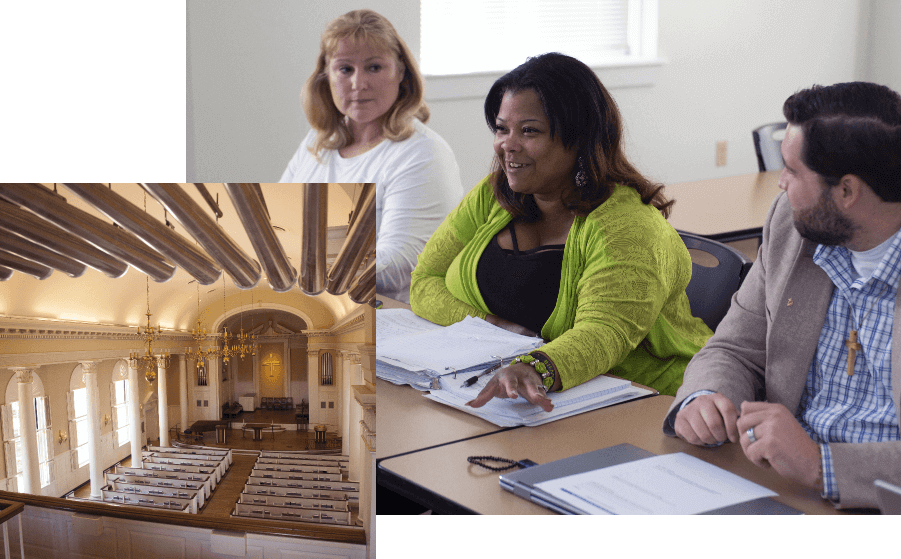
![MinistryEBookCover-Version2[11]-1 MinistryEBookCover-Version2[11]-1](https://perkins.smu.edu/hubfs/pillar-pages/template/MinistryEBookCover-Version2%5B11%5D-1.png)



